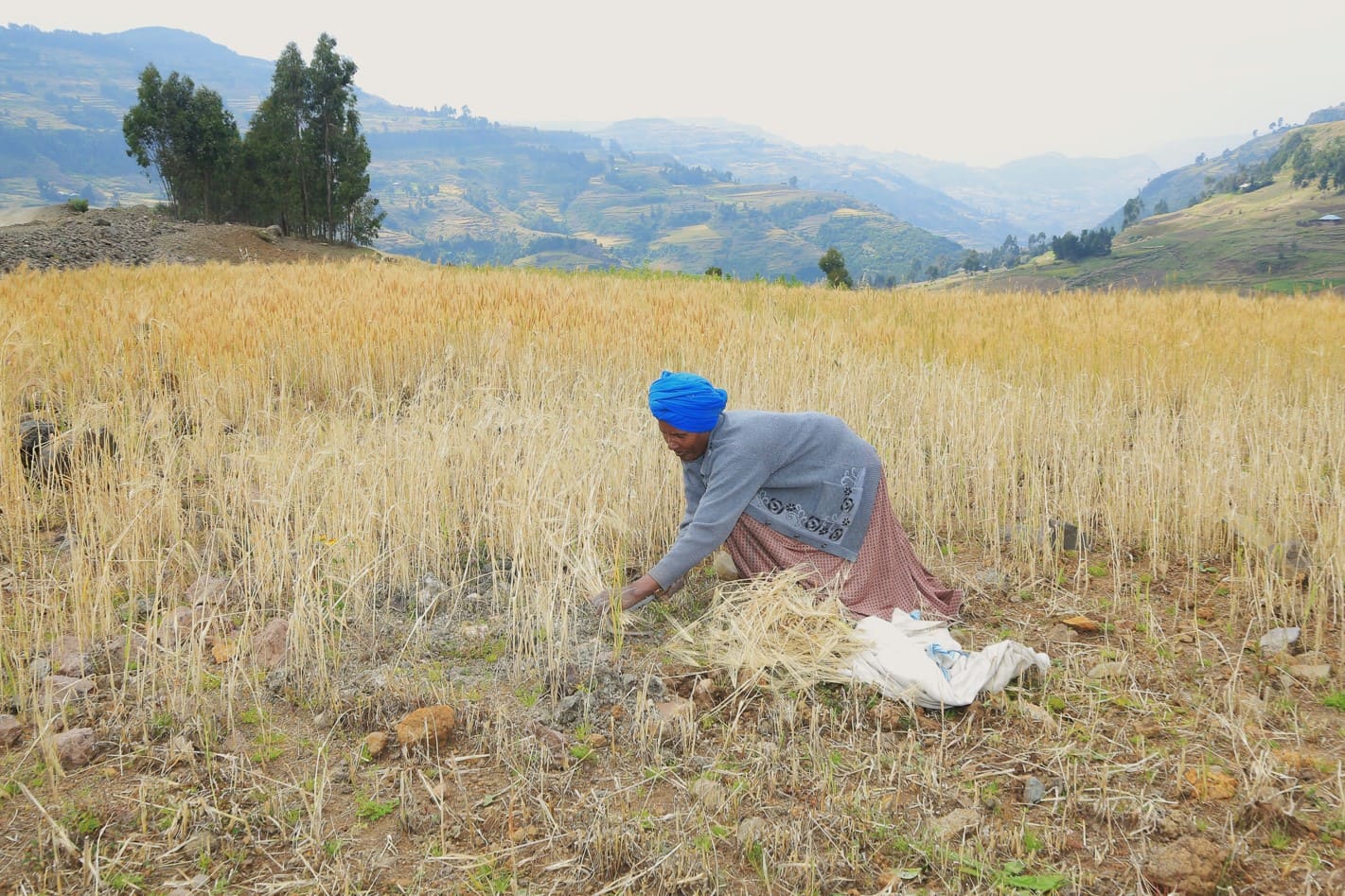
The accelerating pace of climate change is redrawing the boundaries of what is possible in dryland agriculture. Crops that once thrived in farmers’ fields are withering under shifting rainfall patterns, rising temperatures, and increasing attacks from pests and diseases. At the same time, livestock that have grazed on dryland rangelands for generations are increasingly struggling to get the nutrients they need from degraded food and water sources. These converging stresses are threatening the viability of traditional farming systems and demanding urgent, science-driven adaptation
ICARDA is scouring the genetic diversity contained in the thousands of crop varieties and livestock breeds to find those that can thrive in the changing conditions. We ensure that alternatives that are adapted to new and future climate conditions, including those that are neglected and underutilized, can meet the needs of all the members of the local communities who depend on them. In parallel, we are supporting decision-makers with a better understanding of why inclusion matters, for example, how public policies can improve women’s resilience to climate change and environmental hazards by enabling their full and effective participation in climate governance at different scales.
Germplasm lines developed and transferred to NARS for local adaptation.
Genetic resources transferred to partners beyond ICARDA for global agricultural research.
Year-on-year increase in crop performance through advanced breeding.
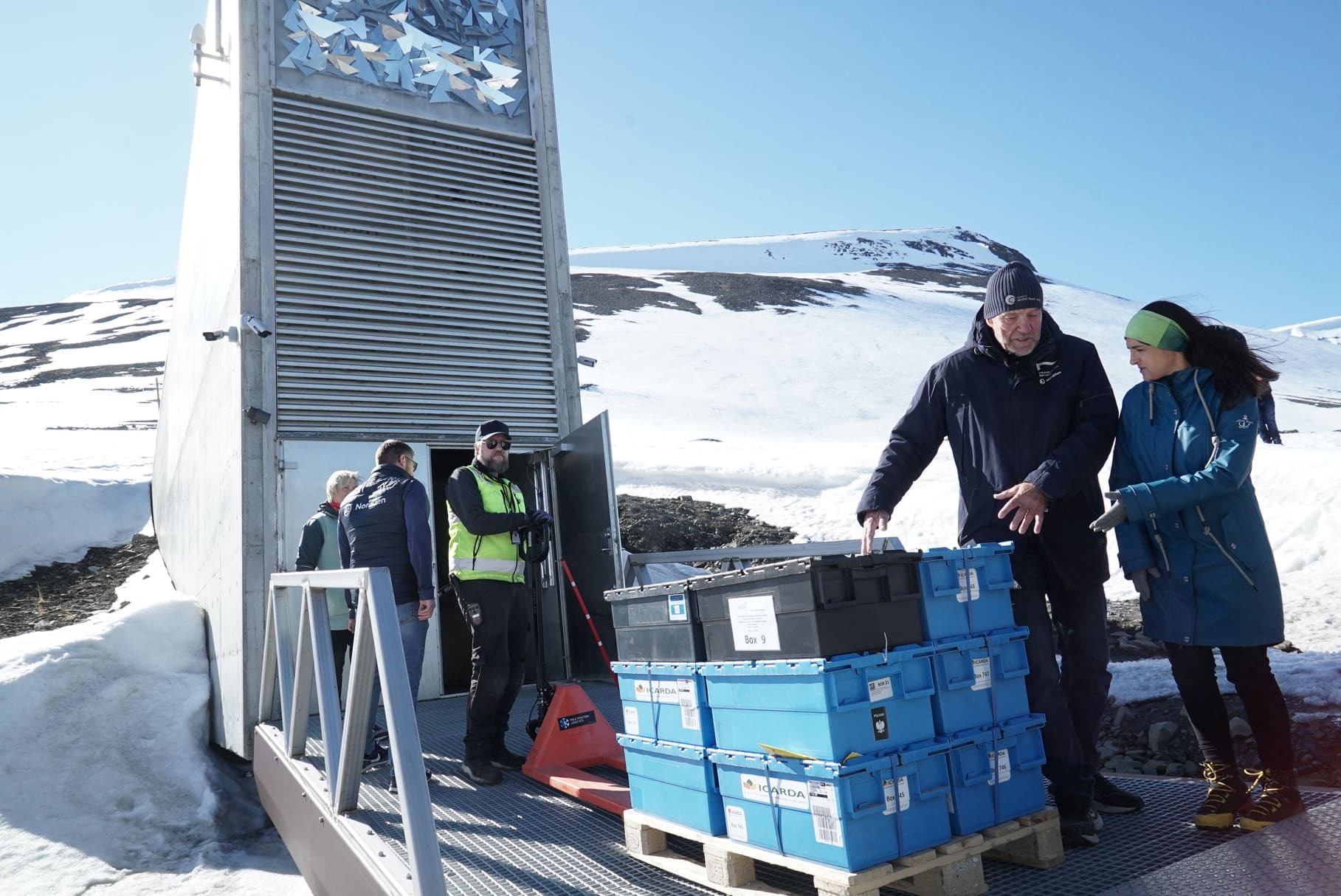
In a year marked by heightened geopolitical instability and severe humanitarian crisis in the Middle East, ICARDA acted swiftly to protect the region’s crop diversity housed in its genebank in Lebanon. Emergency shipments of 14 vital crop species were relocated from our genebank in Lebanon to our genebank in Morocco. We placed another nine into long-term storage at the Svalbard Global Seed Vault in Norway. This emergency response will ensure the genetic diversity contained within these crops will remain available to rebuild food production systems in the region once the situation allows.
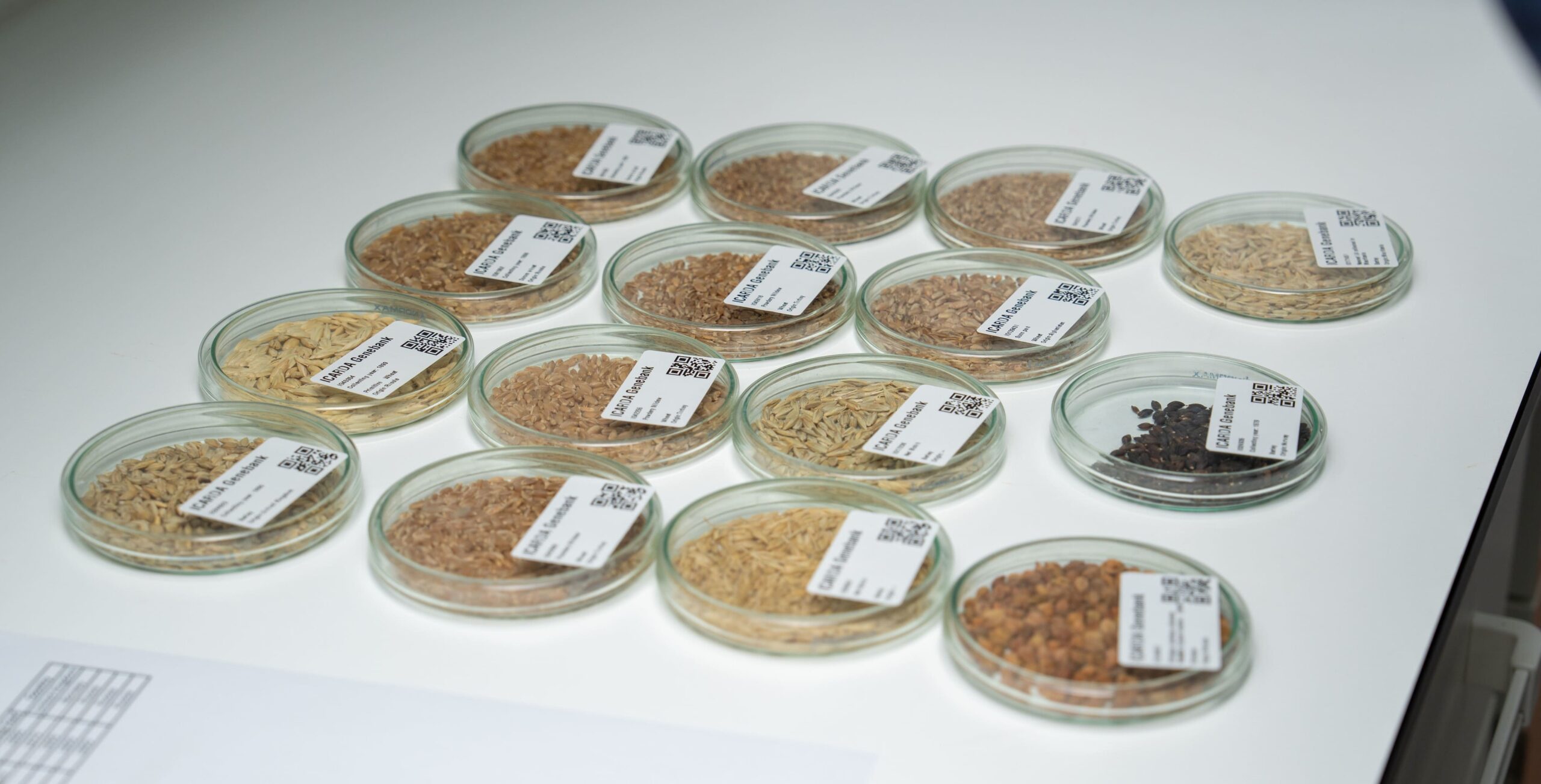
This year, we have also reached our 90% target for availability and safety duplication of barley and wheat, securing collections for the longer term. These include wild ancestors of these modern domesticated crops, which have evolved over millennia. They contain a rich treasure trove of genetic diversity that we need to adapt food systems to today’s environmental challenges.
Integrating digital tools such as the Genebanks Online Research Tool and advanced characterization technologies into our conservation and use efforts is transforming ICARDA’s genebanks into bio-digital resource centers. Deploying the latest technological innovations, which include more accurate performance predictions, means that scientists and breeders can make quicker selections of which genetic resources hold the most promise to meet future climate challenges. Access to these resources has also become easier than through the newly developed Seed Request app on the ICARDA Germplasm platform, streamlining the way users explore and request genetic materials.
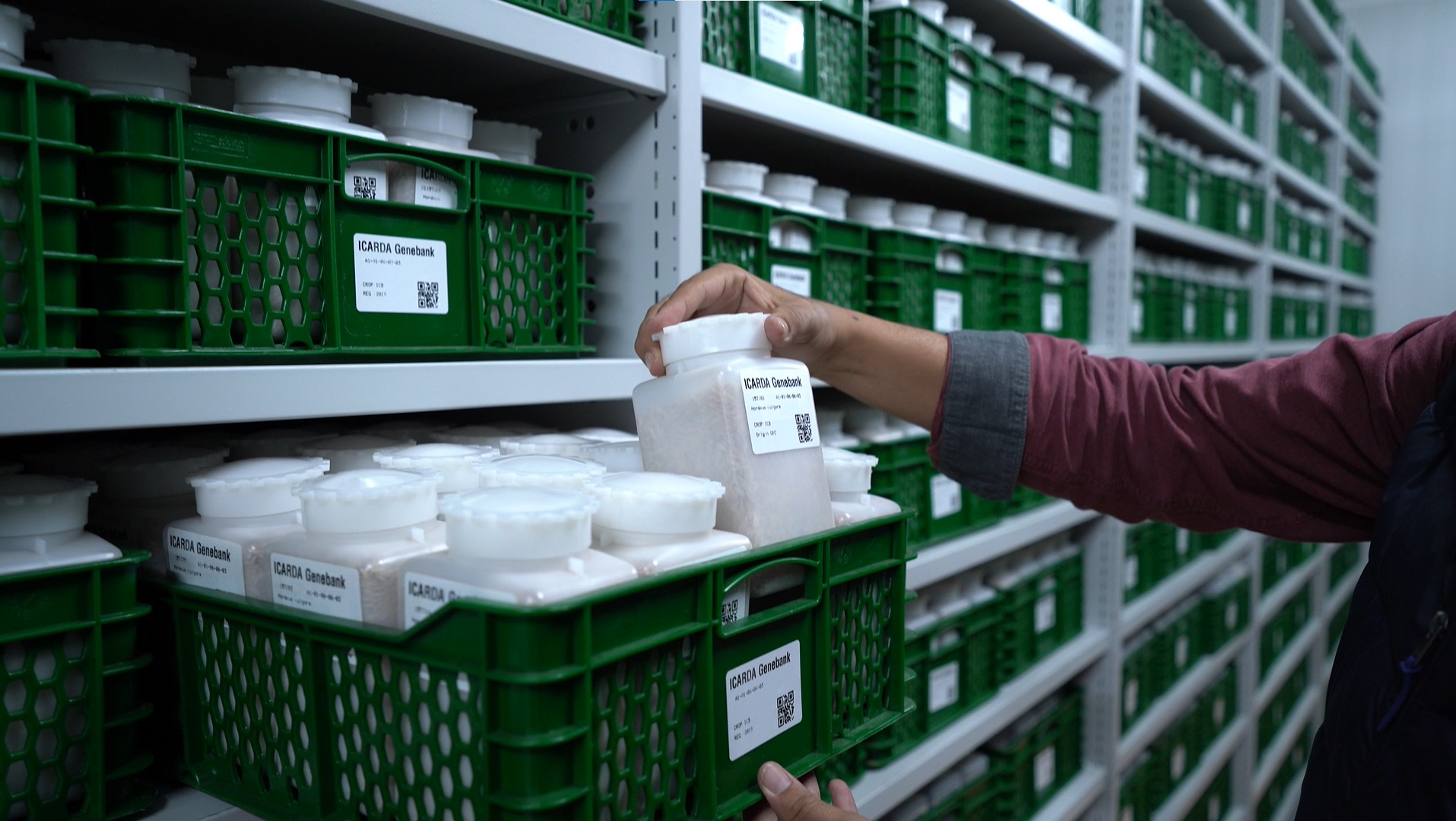
While Africa currently spends a staggering USD 15 billion on importing 40 million tonnes of wheat annually, countries such as Zimbabwe have made significant strides toward self-sufficiency. Helping them to do so is SAVE, an improved variety of bread wheat developed by ICARDA in partnership with Zimbabwe’s Department of Research and Specialist Services through the TAAT program. SAVE was bred to be resistant to heat, drought, and wheat rust, and can be cultivated in both summer and winter growing seasons. Similarly, in Sudan, ICARDA and partners are reviving wheat research and seed systems through the TAATII Wheat project, demonstrating that even amid conflict, advances in climate-smart varieties and farmer training can reignite the path toward self-sufficiency.
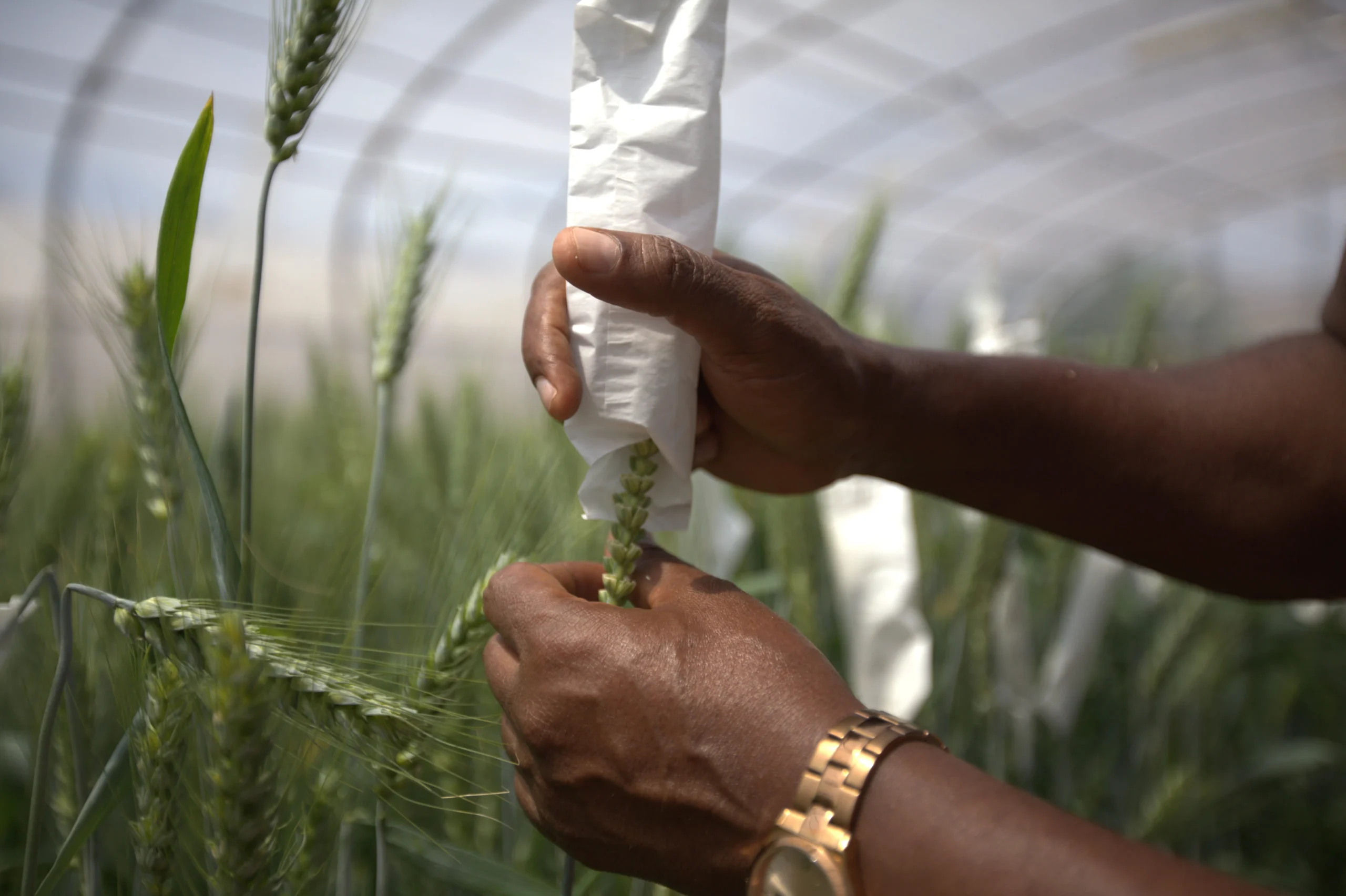
CHAM 12, a new wheat variety to boost rainfed agriculture in Syria, is also showing promising results. It was developed by ICARDA in partnership with the General Commission for Scientific Agricultural Research (GCSAR) to help secure domestic production in a country where water is increasingly scarce and the need for drought-resilient varieties is rising.
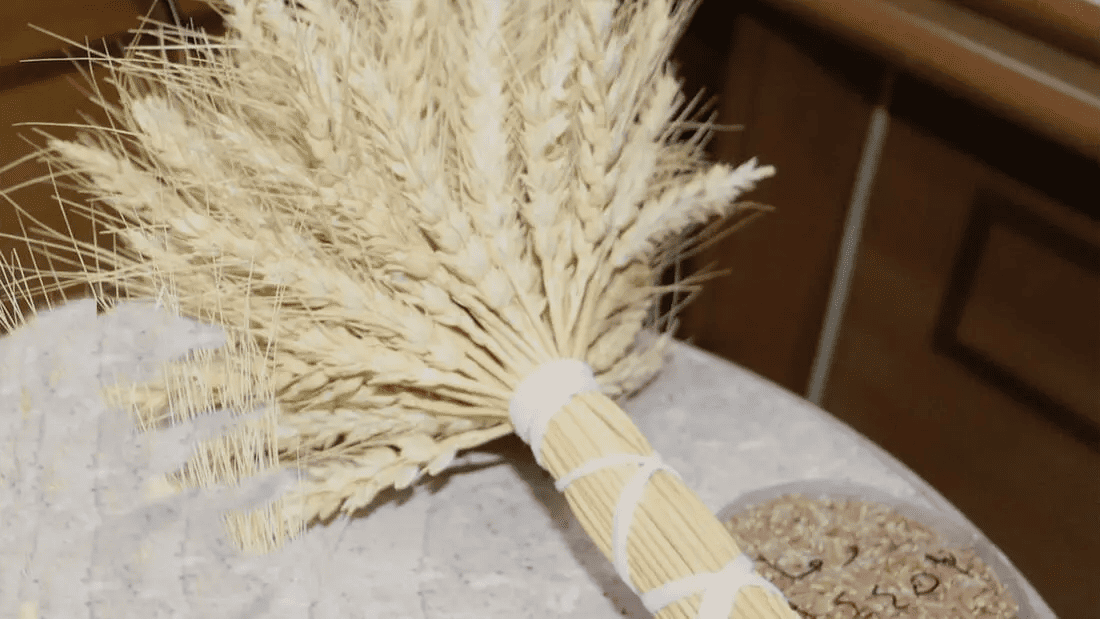
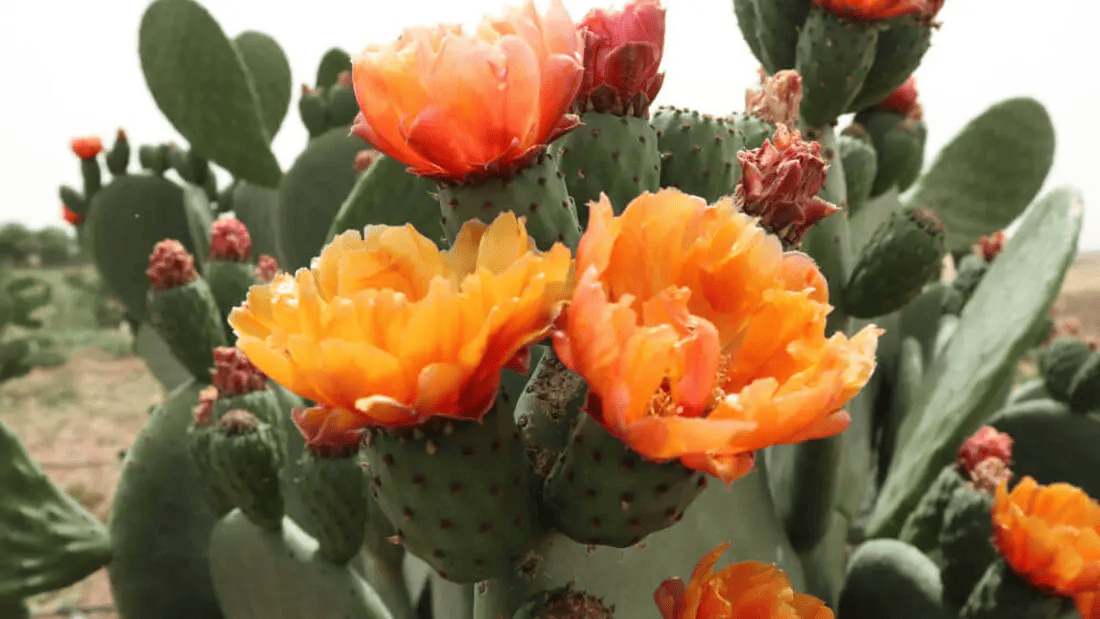
Cactus pear is gaining traction as a climate-resilient food and fodder crop. Trials carried out by ICARDA and partners in Jordan and India are showing how, with the right research and investment, this prickly crop can help strengthen climate resilience, food security, and ecosystem restoration in dry regions.
Nutritious pulses such as chickpea, lentil, grasspea, and faba bean, punch above their weight when it comes to standing up to environmental stresses of drought and heat. They also boost soil health through biological nitrogen fixing.
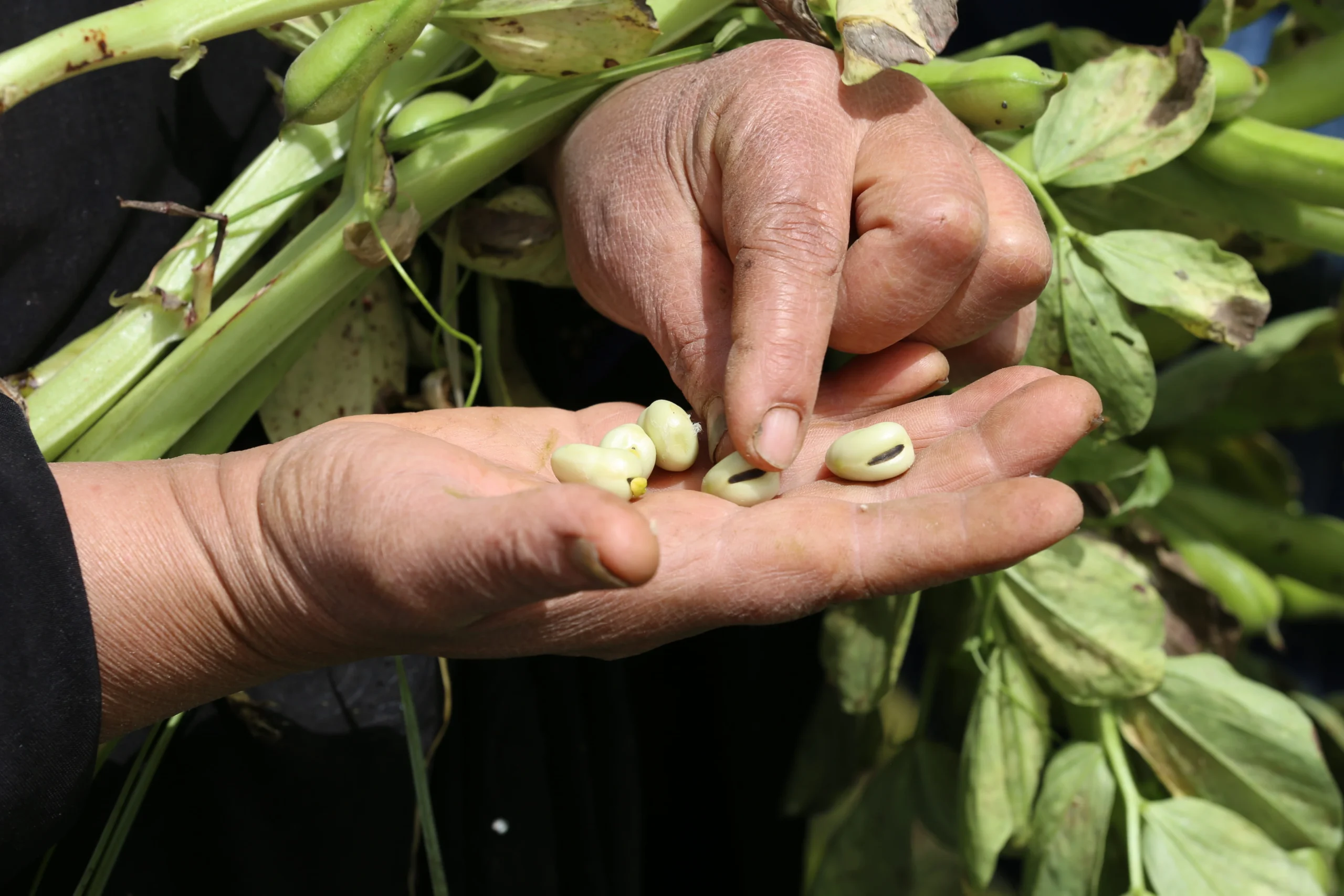
Over the last fifty years, ICARDA has introduced 28 climate-smart, high-yielding varieties in India alone. We have also gathered evidence about how, with the right research and investment, they could rapidly reshape the landscape of sustainable farming. Our work on grasspea, for example, is showing its potential as a crucial rainfed crop that can be used in rice fallow systems – when land is left unused between rice crops. This hardy drought-tolerant legume is climate resilient, nutritious, and can thrive in poor soils; making it a vital option for sustainable, low-input agriculture.
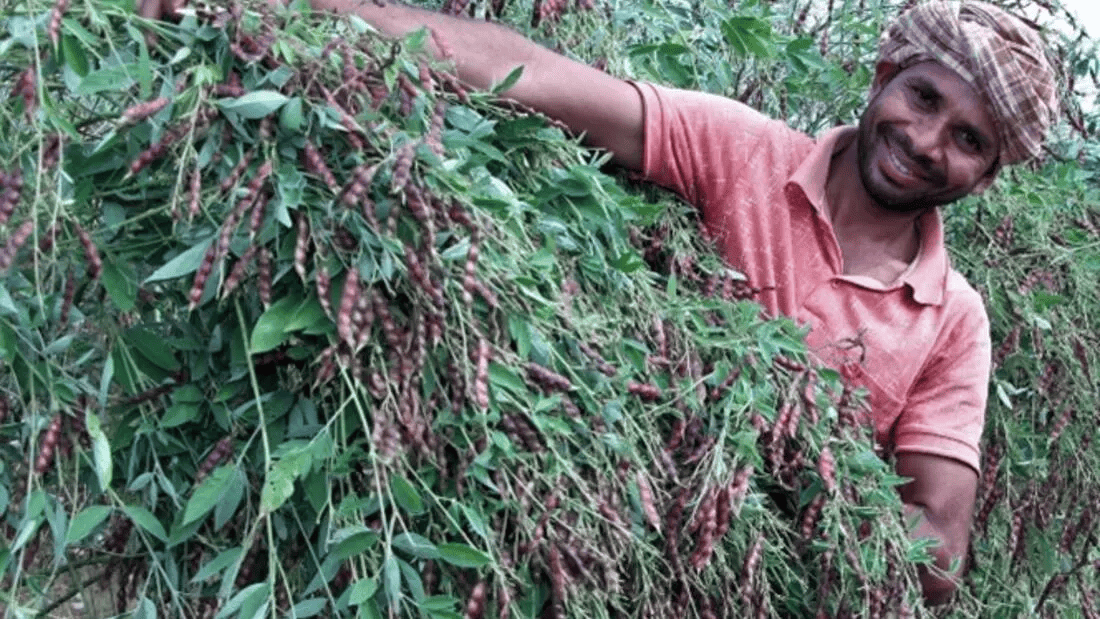
In 2024, we hosted a meeting of over 200 researchers and policymakers in partnership with the Indian Institute of Pulses Research to foster collaboration to enhance pulse production and, in September, signed a Memorandum of Agreement with the Government of Odisha to revive forgotten pulse crops like pigeon pea and field pea.
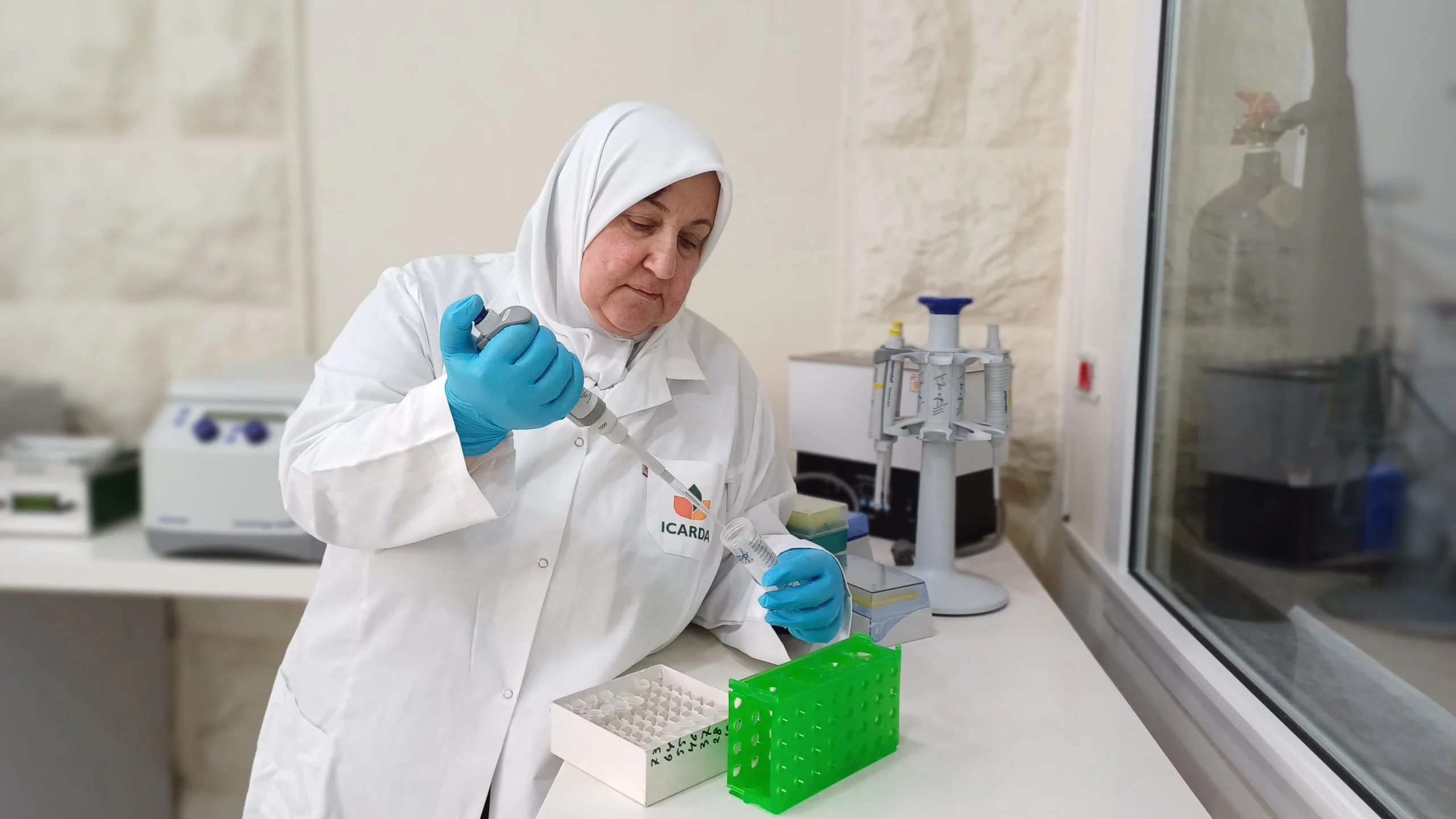
Each year, invasive pests and pathogens cost the world around USD 220 billion in crop losses. ICARDA’s Seed Health Laboratories in Lebanon and Morocco play a vital role in prevention, testing more than 26,000 accessions in 2024 alone for viruses, fungi, bacteria, and pests to ensure safe, clean seed distribution. We are also continually improving our seed health infrastructure and testing methodologies to ensure the clean health status of conserved seeds, plants, and plant parts that are used in crop breeding and research.
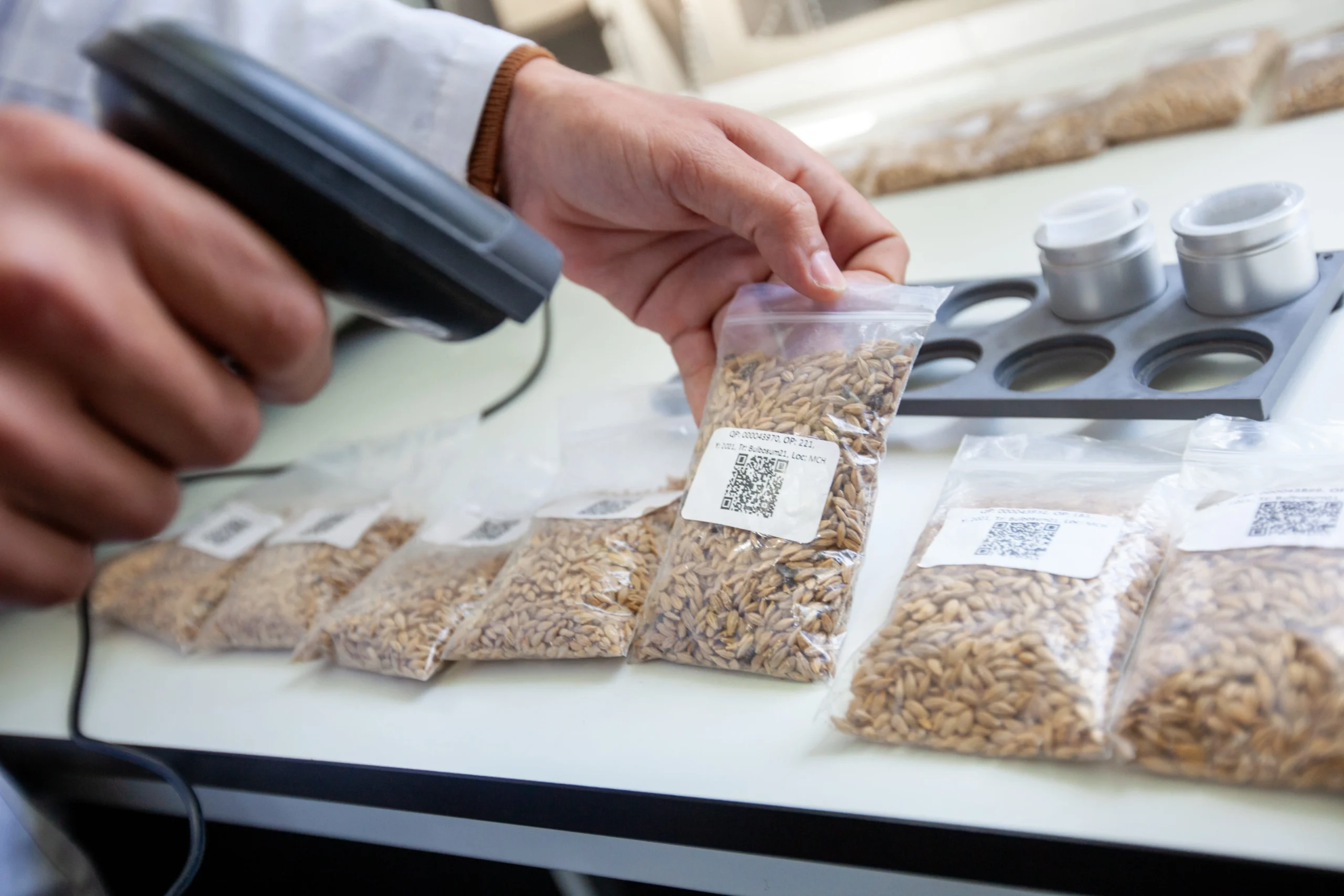
ICARDA has the CGIAR mandate to improve barley, lentil, faba bean, grasspea, durum and bread wheat, and kabuli chickpea, along with pasture and forage legumes, which are all important staple crops for dryland agriculture. Our International Nurseries – ICARDA’s system for distributing new varieties of our mandated crops – are also ramping up their efforts. In the 2023-2024 season, we planted 1,158 individual crop lines of experimental varieties for seed multiplication. From these, in 2024-2025, we prepared around 500 curated sets of requested seed for global distribution and released 27 new varieties globally. These new varieties were 10 winter wheat; 4 Bread Wheat; 1 durum wheat; 1, barley; chickpea, 3; faba Bean; 4 lentil and 1 grass pea.
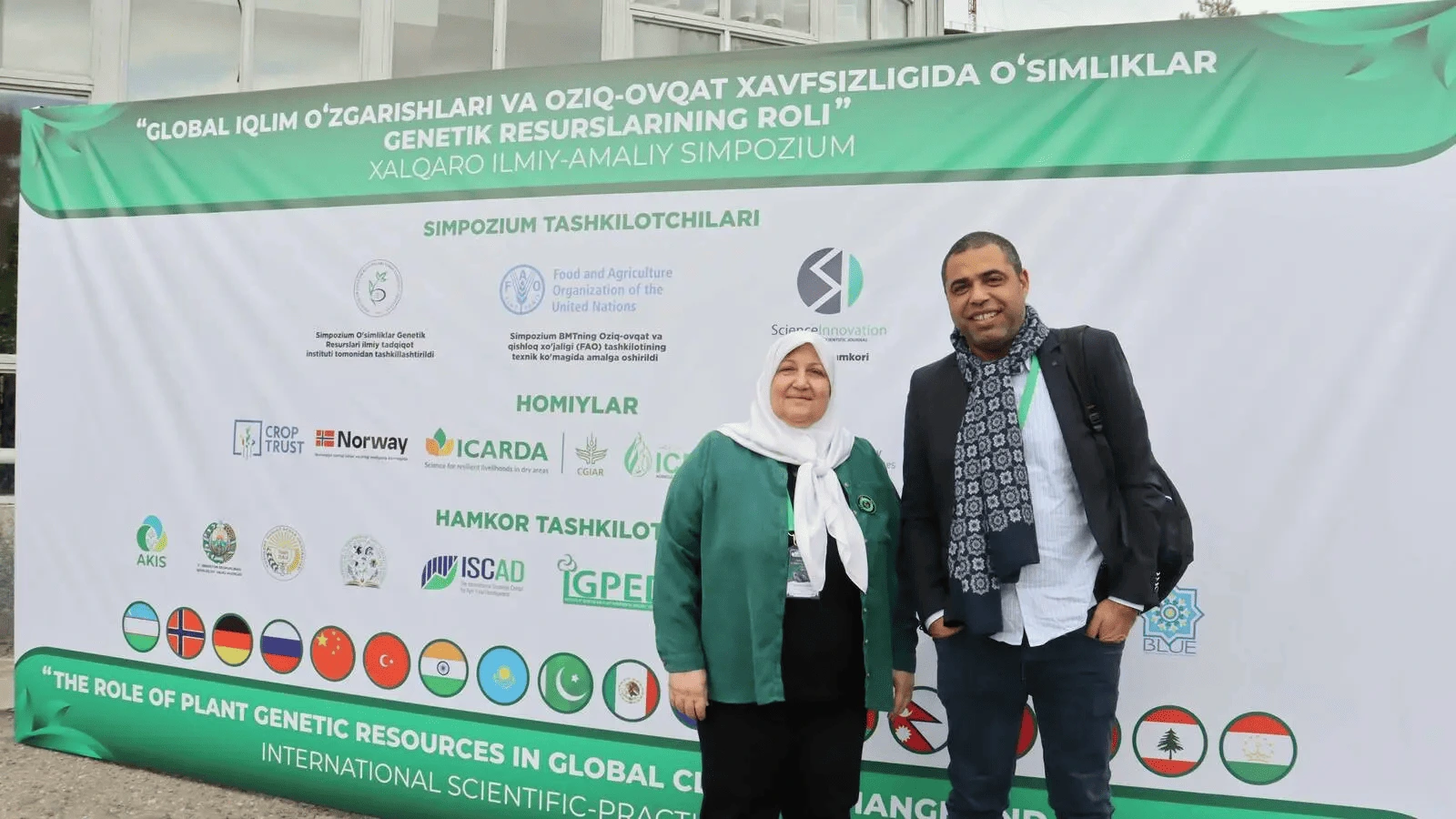
In November, ICARDA co-hosted an international symposium to highlight the critical role of plant genetic resources in ensuring food security under climate change. This was part of activities to mark 25 years of collaboration with Uzbekistan’s Research Institute of Plant Genetic Resources (RIPGR). ICARDA provides RIPGR with around 1,000 accessions of improved wheat germplasm and more than 2,000 other critical crops every year. The symposium was held in partnership with Uzbekistan’s Ministry of Agriculture and other collaborators and attracted 200 participants from 20 countries.
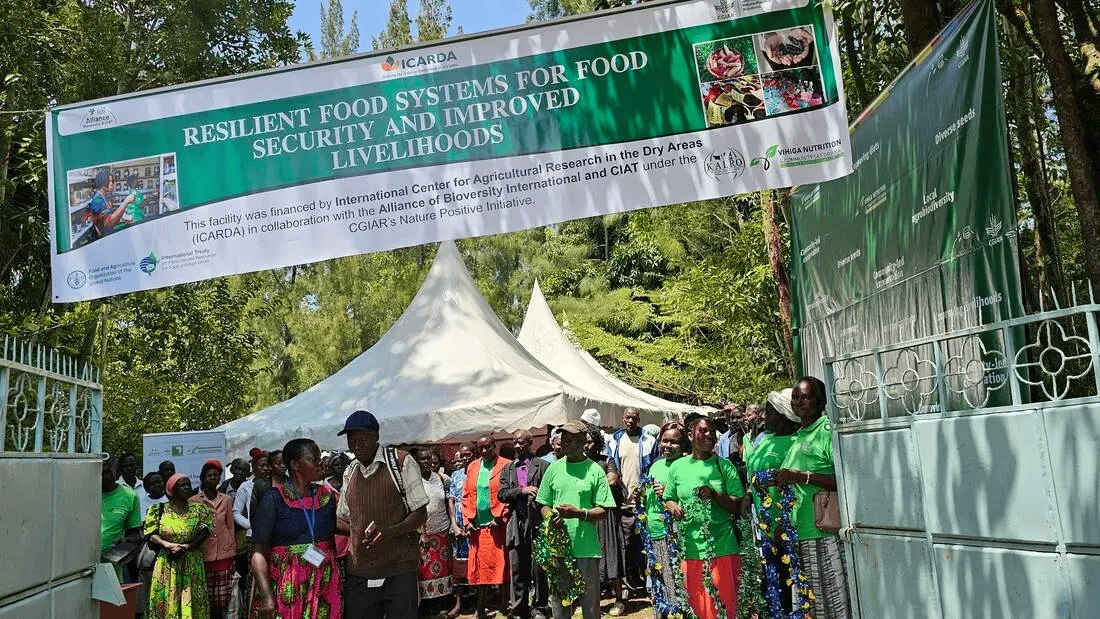
In collaboration with the Alliance of Bioversity International and CIAT, ICARDA is scaling community seedbanks—vital local hubs that safeguard crop diversity, ensure access to quality seeds, and strengthen farmers’ self-reliance and food security. In 2024, we celebrated the opening of a new community seedbank processing facility in Kenya, which will boost farmer access to healthy seeds of resilient crop varieties and strengthen local biodiversity stewardship, including that of indigenous crops.
ICARDA supports integrated pest management across the drylands, including efforts to curb the red palm weevil – an invasive species that can devastate date palm plantations in the Middle East. Yet no matter how smart the innovations and research are, farmers will only benefit from them if they adopt them.
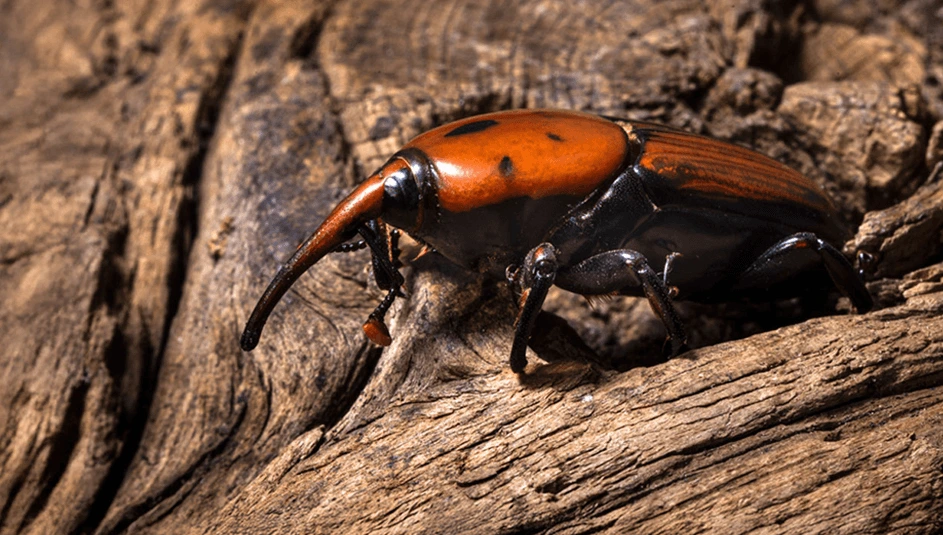
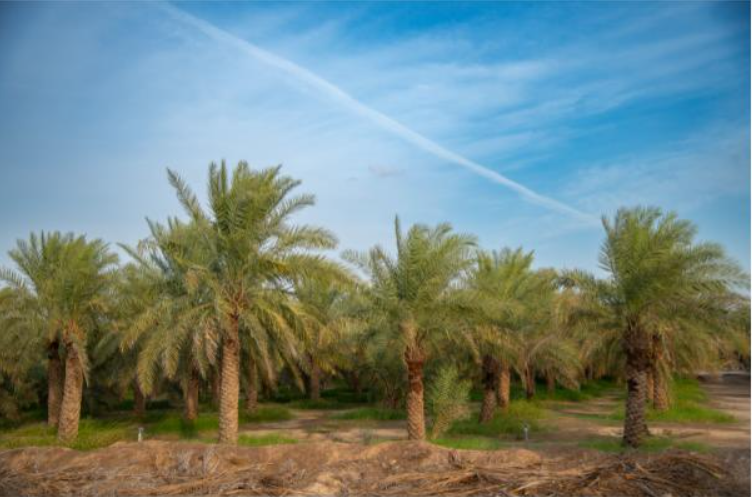
Following a pioneering study to better understand what drives Egyptian farmer adoption of sustainable pest management practices, we have now launched a project to protect palms, livelihoods, and the environment. In addition, the UAE, the Gates Foundation, and ICARDA have officially launched the International Consortium for Red Palm Weevil Control, a science-led partnership bringing together world-leading institutions, researchers, and policymakers to combat one of the most destructive pests affecting palm cultivation worldwide.
Present in
49+ countries
$2 billion
in annual crop losses
35 million
trees infested
50 million
farmers affected
Silent killer – larvae damage is hard to detect.
Explore similar work that might interest you.